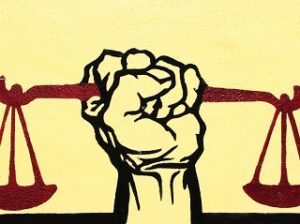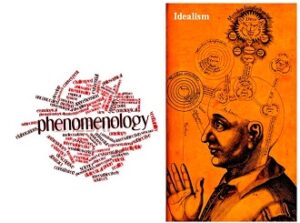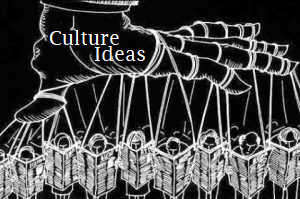
Arquivo para a ‘Método e Verdade Científica’ Categoria
What is fair, how did this concept develop
All contemporary tension involves something beyond politics and economics, the tension over the conception of social contract and power.
over the conception of social contract and power.
The concept of justice is linked to modernity by Contractualism, through construction from the thought of Thomas Hobbes through John Locke and Jean-Jacques Rousseau, they take man out of his natural state and exercise him to live in society, they will differ in this way on the concept of who man is: evil by nature and must live under guardianship, he is influenced by society and develops in it, or he is a “noble savage” that society corrupts.
The set of natural rights and the theory of the state of nature is what is called jusnaturalism, whose problem is that the state of equal rights generates conflicts and the state must arbitrate, but in modern society it is together with the liberal utilitarian thought .
Thus, they are all linked to a social contract established by the state, and the first major criticism is made by Hegel, which he will understand by general will is a pure, idealistic concept, maintained in a rational instance, above any agreement or contract.
Max Weber will make a deeper reform by differentiating domination from power, since domination is the acceptance of power that can be given in three ways: legal, traditional and charismatic. However, in none of them the use of force is dispensed with and the social question is not always remembered.
John Rawls develops and re-elaborates a Theory of Justice based on classical contractualism, determining the rights and duties that must be carried out in order to carry out the so-called “cooperation of peoples” and offers contributions to the social issue that is a source of conflicts.
However, current theorists such as Emmanuel Levinas and Martha Nussbaum, question each one in their own way, if the social contract does not have a serious limitation, Nussbaum points out, for example, the problem of people with mental or physical disabilities, the problem on the issue of animals and forests.
Levinas starts from the ethical requirement that exists in Rawls’s work to elaborate the idea that we must refuse the temptation to impose our will and strive to establish peaceful compromises, and thus rejects the idea of the state as having a monopoly on violence and power, in a certain way. sense, it also re-elaborates the issue of domination and power, central to Max Weber.
Lévinas, E., Humanisme de l’Autre Homme, (1973) (Montpellier : Fata Morgana, 1972).
Being, consciousness and clearing
The clearing of Being was an important theme in Heidegger’s ontological resumption, it is inseparable from the phenomenological methodology which his teacher Husserl was the main modern developer, but it remains an aporia, as stated in Adorno’s and Horkheimer’s Dialectics of Enlightenment, if there is in fact a self-destruction of enlightenment in modernity and why this happened.
is inseparable from the phenomenological methodology which his teacher Husserl was the main modern developer, but it remains an aporia, as stated in Adorno’s and Horkheimer’s Dialectics of Enlightenment, if there is in fact a self-destruction of enlightenment in modernity and why this happened.
Therefore, it is not simply a matter of resuming the Being, but as this can happen from the phenomenological method, then two questions must be raised: placing our preconceptions in parentheses as a result of enlightenment, which is called by Husserl the epoché phenomenological, and the question of the intentionality of consciousness, in it the Being is unveiled, there reside most of our problems and dissatisfaction.
Contemporary culture (or what’s left of it, as Dalrymple says, we’ve already posted here) goes against the grain in this sense, what some authors call an excess of positivity, that logic described even as “mystery”, affirmation of desires and needs, summarizing life seen as utility only and not as essence or fullness.
In this way, we must make an “emptiness”, a silence in the soul so that we have the fullness of the being, remove the immediate desires and needs in order to be able to understand in fact the true needs and nourishment of the Being that lead to joy and fullness, the simple impulse leads to temporary compulsions and as such satisfy only the immediate need, what is proper to the Being remains hidden.
It is possible with these two measures: to make a void (epoché) by putting in parentheses what our preconceptions are, re-elaborating them in a hermeneutic circle that actually allows a new “concept”, after the fusion of horizons.
This is why ontology says that the Being remains hidden, it is beyond what is immediate and apparent, it should not be sought “Outside”, but “Inside”, true interiority is needed, without manipulations and barriers, many thinkers, mystics and spiritualities manage to this, and reach a fullness, even if temporary, will be food for a true asceticism.
For Christian philosophy and theology, it is not possible to reach true fullness without announcing and living its values, says the reading (Mt 5:14): “You are the light of the world. A city built on a hill cannot be hidden. Nobody lights a lamp and puts it under a bowl, but on a lamp, where it shines for everyone in the house”, but this must be done with respect and fraternity and never with proselytism and judgments.
Being, Truth and Consciousness
It is not by chance that when we are faced with the greatest technical development of humanity, the current development of Artificial Intelligence that threatens to invade the universe of all things (the IoT is just a detail of this), we are also faced with the question of what it is consciousness.
the current development of Artificial Intelligence that threatens to invade the universe of all things (the IoT is just a detail of this), we are also faced with the question of what it is consciousness.
From the truth of classical antiquity, Alethéia (a-létheia) is to reveal what is hidden, passing through countless authors until arriving at the Frankfurt School where Adorno and Horkheimer who speaks of the aporia of enlightenment, the one who at the beginning of modernity seeks to obtain a “objective” truth that conceals being.
In this question of truth, Heidegger, who develops the question of the forgetfulness of Being and the concealment of truth, developed it as: “in the following sentence where one writes about ‘truth’, it is evident that the representation of the essence of truth dictated by some modern manual of epistemology, leaving unchanged and untouched the essence of aletheia” (Heidegger, 1998, p. 115), says the author about authors who are trapped only in the etymology of the word.
The Frankfurtians, on the other hand, describe the issue of enlightenment as follows: “The aporia we face in our work thus reveals itself as the first object to be investigated: the self-destruction of enlightenment. We have no doubt – and this is where our petitio principii lies – that freedom in society is inseparable from enlightening thought” (Adorno & Horkeimer, 1947) which they reduce to a small principle, since they do not see the question of Being as central.
When questioning what is consciousness, or what is sentience in the matter of Artificial Intelligence, we are not questioning anything other than what separates us from things, ultimately what is Being and if in fact it only has meaning of “object” that modern enlightenment wanted to give us.
We are also faced with ethical and moral principles when “unveiling” (a-lethéia, non-hidden) the question of Being, resuming it is not just an exercise in the etymology of the word truth or a philosophical exercise, it is first of all to do an essential question, a lato principii: “what is being” and what is hidden.
The possibility of the clearing is none other than the one that puts us not before the truth logically development, for onto-logically, and from there to define what is conscience, developed by Heidegger in the following way: “consciousness is the appeal of the preoccupation from the estrangement of being in the world that awakens Dasein to its own power to be guilty” (Heidegger, 2012, p. 791).
The question remains if it is possible for all beings, and for the current modern man, a “awareness” that reveals within itself as an enlightenment of consciousness, beyond hatred, polarization, intolerance and the narratives that hide the truth of Being.
Turning to fortune tellers, self-help, does not make the wheel of history and truth go backwards, we walk in the dark, in concealment and not in the awareness of Being.
ADORNO, T. W. T. W. & Horkheimer, M. Dialética do Esclarecimento, 1947.
HEIDEGGER, Martin. Heráclito. Trad. Marcia Sá Cavalcante Schuback. Rio de Janeiro: Relume Dumará, 1998.
______, Ser e Tempo (edição em alemão e português). Trad. de Fausto Castilho. Campinas: Unicamp; Petrópolis: Rio de Janeiro, 2012.
The idealist crisis and the ontological recovery
The evolution of the Enlightenment in both politics and economics culminated in Hegelianism, after passing through Kant’s critique of reason, it is the last great theory that seeks to realize an “integrated” totality, subject to “dialectical” contradictions (it is different from the dialectic of classical antiquity) and, according to his model, the ultimate aim would be to reach the full spiritual essence, which has little or nothing to do with religiosity.
after passing through Kant’s critique of reason, it is the last great theory that seeks to realize an “integrated” totality, subject to “dialectical” contradictions (it is different from the dialectic of classical antiquity) and, according to his model, the ultimate aim would be to reach the full spiritual essence, which has little or nothing to do with religiosity.
It was thus the dialectical materialist asceticism that ended in an enormous void and in the “forgetfulness of being”, a term used by Heidegger to contradict the theories that since Descartes have emptied and criticized the metaphysical reading of reality, in the etymology of the word meta-physis, in this case the Greek, since its origin is from there, according to Aristotle it was the first science, it gave solid knowledge about things, and the study is confused with ontology, the “being as being”.
For Kant this study is confused with that of customs, it is a non-empirical or rational knowledge, his study on morality and “subjectivity” will start from this relationship with cultural customs and here there is already a strong dose of relativism, and deepens the dualism between Subject x Object, forgetting the “Being”.
So that which is subjective, theoretical or metaphysical is falling into disrepute and theories of objectivity, practicality and empirical realism grow, this will not be done without contradiction, but the very definition of idealist dialectic is this, the development of this concept from from yourself.
Plato defined dialectics as the art of thinking, questioning and organizing ideas (Greek eidos – image, we already posted something), so neither theory is out of the question (idealism is also a theory, by the way, not very practical) , neither metaphysics nor “being”.
The theo-ontology of the end of the measured age will establish the relations between the entity and the being, according to Thomas Aquinas he “is infinite. Therefore, if it becomes finite, it must be limited by something, which has the capacity to receive it, that is, by the essence”, present in his thesis “The entity and the essence”.
Amidst the crisis of idealist thought, see the previous post, a new current emerges from Franz-Brentano in the mid-nineteenth century, which resumes phenomenology and ontology working on the intentionality of human consciousness, which was a specific study in Thomas Aquinas, to try to describe, understand and interpret the phenomena as they appear to perception.
Brentano was Husserl’s teacher, who rereads Descartes and Kant, and elaborates phenomenology with a different meaning given by his teacher Brentano, seeks to separate what is empirical, so the phenomenon of the mental act is not something that appears instantly in the mind, but depends on the memory and elaborates from there the concepts of protension and retension, the discussion about what is consciousness today reaches the objects of Artificial Intelligence.
Heidegger was a student of Husserl, and from him one can consider both the linguistic turn (not all authors agree) and the ontological resumption.
The Lights of Enlightenment
We still live under the aegis of the Enlightenment, the strong movement of 18th century Europe, its principles seemed to lead to a perfect society speaking of freedom and equality among human beings, wishing to abolish both the powers of realization and the influence of Christian religiosity, Voltaire and Diderot were the most radical thinkers, but you can’t help but feel the influences of Immanuel Kant, Adam Smith, David Hume and Montesquieu.
Europe, its principles seemed to lead to a perfect society speaking of freedom and equality among human beings, wishing to abolish both the powers of realization and the influence of Christian religiosity, Voltaire and Diderot were the most radical thinkers, but you can’t help but feel the influences of Immanuel Kant, Adam Smith, David Hume and Montesquieu.
Ernest Cassirer makes one of the important treatises on the Enlightenment, quotes Diderot: “The Author of nature, who will not reward me for having been a man of spirit, will not condemn me to eternal punishment for having been a fool” (apud Cassirer, 1992, p. 224), but the author corrects both the aspect of tolerance, it is necessary to remember the wars between Lutherans and Catholics involving different reigns and the peace of Westphalia, and the aspect now of a free religiosity that “is no longer a gift of a supernatural power, of divine grace; it must spring from the action itself and receive its essential determinations from the action” (Cassirer, p. 225).
The idea also developed by Cassirer of a “pure” intellectualism, on the one hand puts a primacy of thought over pure theoretical speculation and on the other hand seeks to found a religion “in the pure limits of simple reason”, of course without faith, without the mystery (which is part of nature) is no longer religion.
Cartesian insufficiency and reductionism, a strong argument of Cassirer to the Enlightenment, made several philosophers seek roots in Eastern philosophy, Cassirer reminds Leibniz that he had already “quoted Chinese civilization” and in the Persian Letters, Montesquieu makes a comparison between East and West, but it will be Schopenhauer (Upanishad) and Nietzsche (Zaratrusta) who, under these eastern influences, will break with Enlightenment philosophy.
Leibniz is not directly contested, but his disciple Wilhelm Wolff, who “celebrates Confucius as a prophet of great moral purity and places him on a par with Christ” (Cassirer, p.226), will be the target of Voltaire’s irony in his famous “Candido, or optimism” (1759), criticizes the idea of “the best of all possible worlds”.
In the economic aspect, it was important to overcome the philosophy of mercantilism and develop liberal theory (especially Ada, m Smith) on the concept of the economy of nations, but liberalism will develop more broadly with the idea of financial capital by David Ricardo (1772-1823).
The civilizational crisis that we pointed out in last week’s posts (and previous ones, of course), has its roots in the Enlightenment and its ideas of state, religion and freedom, but as Cassirer points out, it is important to “reject the literal meaning of the Bible every time it is mentioned. finds expressed the obligation of an act that contradicts the elementary principles of morality” (p. 228), but in his Treatise on Tolerance (1763), a law of the intellectual world is traced “that reason only exists and subsists if it is recreated day after day” (p. 229).
Cassirer’s development however is that “one cannot decide on their point value apart from their moral efficacy. This is Lessing’s meaning of the apologue of the ring: the ultimate and profound truth of religion is only proved from within” (p. 230).
For these philosophers, only objectivity (the relationship with the external object) is knowledge, and this is achieved in a “transcendence” of the subject in relation to the object, thus there is no sense or value in a moral asceticism, thus for them religion is religion. natural, although they do not have a good relationship with nature.
CASSIRER, Ernest. (1992) A filosofia do Iluminismo (The Philosophy of the Enlightenment). Trans. Alvaro Cabral. Brazil, Campinas, SP: Editora da Unicamp.
One year of war and three of pandemic
On December 31, 2019, the World Health Organization (WHO) was alerted about cases of pneumonia in the city of Wuhan in China, in Brazil although there were cases without a precise diagnosis, I remember a case that was reported in Minas Gerais, only in On March 11th, when the WHO characterized the situation as a “pandemic”, it started a combat process in Brazil.
pneumonia in the city of Wuhan in China, in Brazil although there were cases without a precise diagnosis, I remember a case that was reported in Minas Gerais, only in On March 11th, when the WHO characterized the situation as a “pandemic”, it started a combat process in Brazil.
Accurate data is lacking, however WHO continues to talk about advancing numbers and the Kraken variant (other is Othrus, CH.1.1, appear in England) and China has had records of infections.
For those who don’t remember, March 11, 2011 was also the date of a tsunami that affected the Fukushima plant (in the photo the tsunami in Minamisoma, Japan), just to remind you that both natural disasters and those of a war can affect the 447 reactors nuclear weapons in operation in 30 countries (according to data from the WNA, World Nuclear Association), in addition to the nuclear weapons that are growing all over the world.
In a meeting at the Ramstein military air base in Germany, members of the EU, Canada, Japan, USA, and among Latin American countries, Chile, Colombia, Costa Rica, Ecuador, Mexico, Paraguay, Peru and Uruguay, signed their support for Ukraine. Brazil did not sign.
The request for sending Leopard tanks, the most advanced and manufactured in Germany, has not been decided, Finland will be able to send 200 units that it has of this type of military vehicle, the next meeting will include the sending of 4th fighters. Generation, Russia has the powerful MIg-31 with strike and aircraft intercept capability in combat.
The warnings should be seriously discussed by those who claim to fight for life and peace, the use of rhetoric no longer works due to social media, at all times election campaign lies and populist statements are confronted with an increasingly warlike reality.
Multiculturalism and diversity
As we outlined in previous posts, there is no way to talk about conflict and peace these days without addressing the cultural background issue and in them the philosophical ideas that are a background and how it could not be otherwise is also discussed by Zizek.
addressing the cultural background issue and in them the philosophical ideas that are a background and how it could not be otherwise is also discussed by Zizek.
The discourse of cultural diversity, politically translated into multiculturalism, has not solved the problems of the contemporary world, Angela Merkel speaking on October 17, 2010 to a youth meeting of the Christian Democratic Union declared: “This multicultural approach, which says that we simply have to live side by side side by side and be happy with each other, was a complete failure” (p. 51), and there introduced the Leitkultur (dominant culture) debate which insisted “that every state is based on a predominant cultural space that must be respected by members of other cultures who live in the same space” (idem).
What was found is that “the conflict over multiculturalism is already a conflict over Leitkultur: it is not a conflict between cultures, but a conflict between different visions about how different cultures can and should coexist, about the rules and practices that these cultures must share if they want to coexist” (idem), and what happened was that the dominant culture wanted to dictate its vision of particular diversity.
I was once in a dialogue between Christians and non-believers full of spirit and curiosity and what I saw was an attempt to impose a particular vision of Christianity on atheism, double betrayal and no dialogue.
Clarifies Zizek, when speaking of gays: “At this level, of course, we are never tolerant enough, or we are always too tolerant, neglecting women’s rights, etc. The only way out of this impasse is to propose a universal positive project, shared by all interested parties, and to fight for it” (ibidem), this is the end of Chap. 3 “The return of the bad ethnic thing” that I purposely avoid to just listen and shut up, since as a white person of European descent, I am part of Leitkultur.
Just as many European thinkers want, Edgar Morin in his defense of a global citizenship, Peter Sloterdijk who asks Europe to wake up, in his own way Zizek asks for a positive emancipating Leitkultur, “not just respecting others, offering a common struggle, because today our problems are common” (Zizek, 2012, p. 52).
Chapter 4 could now be rewritten, since “the desert of post-ideology” has given way to the return of the ideological struggle of the beginning of the last century, we are going in circles and going backwards.
The rest of the book talks about the Arab spring, the “occupy” movements and ends with “beyond envy and resentment”, the one that Nietzsche drew so well, but just look at the current discourses and they are nothing but resentments and hatred distilled and Unsuccessful envy and “the signs of the future” of conclusion now seem obscured by a lack of subtleties, clarity and sane policies interested in the common good.
ZIZEK, Slavoj. (2012). O ano que pensamos perigosamente (The year we dream dangerously). Trans. Rogerio Bettoni. Brazil, São Paulo: Boitempo.
Political economy and morals
The confrontation of these ideas will be present in most of the texts that intend to analyze the world social conjuncture, the decline of the great nations and empires, the return of nationalism and socialism at the beginning of the last century and their main theses are, as explained by Slavoj Zizek: the political economy and the Party of Order (Zizek, 2012, pg. 28), which was the beginning of the polarization that is now worldwide and went beyond patriotic limits.
social conjuncture, the decline of the great nations and empires, the return of nationalism and socialism at the beginning of the last century and their main theses are, as explained by Slavoj Zizek: the political economy and the Party of Order (Zizek, 2012, pg. 28), which was the beginning of the polarization that is now worldwide and went beyond patriotic limits.
His whole discussion is between the “doxa” (only to understand that of the ortho-doxa) of the Marxist Frederic Jameson (Valences of the Dialetic) and the neo-Marxists Michael Hardt and Antonio Negri (Multitude) for whom the evolution of work called immaterial (Marx’s nomenclature for intellectual work) or symbolic work (nomenclature for linguists and semioticians) and which is at bottom what Kant and later Hegel called “subjective”, which is trapped in objective x subjective dualism, even if transcendence is incorrectly used for the subjective, there is nothing supernatural in any of them.
What Marx differs from Zizek points out: “the ‘objective’ determinations of social reality are at the same time ‘subjective’ determinations of thought (determinations of the subjects trapped in this reality) and, at this point of indistinction (where the limits of our thought, their impasses and contradictions, are at the same time the antagonisms of objective social reality itself)…” (Zizek, p. 10), to summarize and make it clearer, in Marx’s view it is the “mode of production”, that is, the way in which material goods are produced that determines subjectivity, thus unites them, but eliminates any “transcendence”.
The important analysis of the precedence of political economy over any morality, which is submitted to it as explained above, makes this field the object of moral and also political relativism, where the ends come to justify the means, even if morally unjust, it matters little, but the analysis that a large part of intellectual subjectivity has become public (I prefer transcendence that is not or even immaterial work, because the fruit in the last instance is always a physical product, even if it is a book or a text), so for this reason the Hardt’s and Negri’s analysis make sense, even if they are all somehow linked to the subjective of Hegel or Kant, and are ultimately footnotes to Plato and Aristotle, as several philosophers have said.
After reviewing several Marxist concepts, such as added value (I remember that in Portugal it is common to use it as a synonym for adding value to products), he sentences the difficulties of communism in our time, such as the reforms in China by Deng Xiao Ping: “ introduce capitalism without the bourgeoisie (as the new ruling class); now, however, Chinese leaders are painfully discovering that capitalism without a stable hierarchy … breeds permanent instability” (Zizek, 2012, p. 21), this was said long before the real estate giant Evergrande went bankrupt, and was taken over by the state. Chinese contracting this crisis.
The author skips the so-called “Cultural Industry” discovered by the Frankfurtian Marxists in contact with the American marketing machine, but does not fail to note the cultural war in post-socialist countries, when he asks himself whether the economy continues to be the great reference for the analysis political and social, in the case of Eastern European countries: “in which the tension between pseudofolk and rock in the field of popular music functioned as a displacement of tension between the conservative nationalist right and the liberal left” (Zizek, p. 33 ), however, the idea “that the cultural struggle is not a secondary phenomenon…” (idem) is folded.
Although he recognizes, quoting Thomas Frank, that there is a “gap between economic interests and moral questions” (p. 36), he treats the theme with irony and outside the cultural question, of which it is an inseparable part.
ZIZEK, Slavoj. (2012). O ano que pensamos perigosamente (The year we dream dangerously). Trans. Rogerio Bettoni. Brazil, São Paulo: Boitempo.
The reduction of transcendence to subjectivity
The idea of an absolutizing and unique thought has pursued humanity since classical antiquity, the One will appear in almost all texts, but an almost hidden concept coming from Socrates (clearly through “All philosophy is just a footnote to Plato and Aristotle” phrase by Alfred Whitehead, in fact one could extend it to Socrates, in fact Dalrymple himself does not include Aristotle (see p. 67).
antiquity, the One will appear in almost all texts, but an almost hidden concept coming from Socrates (clearly through “All philosophy is just a footnote to Plato and Aristotle” phrase by Alfred Whitehead, in fact one could extend it to Socrates, in fact Dalrymple himself does not include Aristotle (see p. 67).
However, in addition to the problem of translation, few know Greek, and every translation is a betrayal, because we know that language is the expression of Being, and even for science we know that there is no formal truth and we have already posted using Darlymple’s texts , that there are two forms of relativism: the abstract and the empirical, so just to enter a new text, we depend on thought, although abstract dichotomies are also found in it, such as that of formal logic that is valid for mathematics and empirical logic that is valid for science of nature in general and with certain restrictions for social ones as well.
This way we can enter the text of Slavoj Zizek on “The year we think dangerously”, he is talking about 2011 both in the various occupation movements (in Europe in Wall Street) and in the Arab spring, which afterwards the absolutizing thoughts tried to reduce to misunderstandings and ironies, but there was something new and uncomfortable in those movements, and this introduces what Zizek thinks.
And without a doubt a reading more to the left than Dalrymple, but what is interesting is both the search for new paths, the fact that we return to Byzantine socialism and pre-colonial neoliberalism indicates that we are going in circles, and some thinkers look for the new in the midst to populism and polarization.
Zizek’s first important clarification to avoid footnote readings is a quote he makes from Hegel: “if reality does not correspond to the concept, worse for reality” (Zizek, 2012, p. 10), to say that all left-wing thought with Hegelian affiliation, and this includes the orthodox Marxists, are more attached to the theory of thinking, and although they wish to be heirs only to Aristotle who would be more “realistic”, there is also in Plato the idea of the sensible world separated from the world of ideas, but Careful, the eidos of antiquity has little or nothing to do with Kantian idealism, in a word eidos in Greek is image.
The divergence between Plato and Aristotle is in the representation of the real: in Plato the extromission (the image projected into us and which converges to the intelligible world) while in Aristotle coffee the intrusion, where the idea comes from the “world of contingent phenomena” and that emit copies of themselves into our interior, and are interpreted by an innate or acquired knowledge.
Differing from this original conception of Kantian principles, he points out his divergence with Frederic Jameson, and states that in Marx’s thought both the objective and subjective dimensions, not admitting the objective dimensions as ideological, “a description devoid of any subjective involvement” ( pg. 10), but both are not subject to any form of transcendence, what Zizek discusses with Kant and about what he considers “the public space of ‘world civil society’ designates the paradox of universal singularity, of a singular subject who, in a kind of short-[circuit, he bypasses the mediation of the particular and participates directly in the Universal” (pg 11), just as Kant and Hegel do not break away from the objectivity/subjectivity dichotomy to reach a truly universal transcendence.
The absence of an ascesis that reduces man to the merely human, or to use an “too human” philosophical expression, a book by Nietzsche that abandons transcendence, to try later to find it again in the eastern philosophy of Zarathustra, a path taken by many previous contemporary philosophers to the new types of transcendence that we have already mentioned from Theodore Dalrymple.
The analysis of 2011 and its revolts are important for the analysis that he makes of Hard and Negri “Crowd” and the analysis that he makes of the utopias of 2011 are important, if not the only ones, of dreams postponed, since the Prague spring, the revolts of Paris, the movements of the hippies and opposition to the Vietnam War in 1968, if the political consequences were not what was expected, they moved the cultural world for years, and we believe they can also move the scarce political ideas and universal theories about peace between peoples, with the springs of 2011, there is a lack of models of real emancipation, and realism has to do with ideas (eidos) and they are not just “practical” options because they themselves have their theoretical ideals, although rarely examined, Zizek does.
The return to the Greek Eidos, which are what we produce as images, whether from the inside to the outside (extromission) or from the outside to the inside (intromission), is important to review the ideas of our time, where did it get lost or perhaps find the treasure wanted.
ZIZEK, Slavoj (2012). O ano que sonhamos perigosamente (The Year We Dreamed Dangerously), trans. Rogerio Bettoni. Brazil, São Paulo: Boitempo.
Transcendence and reality
Of the seven chapters of “why are we like this” in Theodore Dalrymple’s book, I started with the second in the previous post, because in my view, different from the time the book was written, this theme is more central than that of freedom in connection with religion, which is for him the first topic.
I started with the second in the previous post, because in my view, different from the time the book was written, this theme is more central than that of freedom in connection with religion, which is for him the first topic.
Speaking of freedom, he begins by discussing the motto “it is forbidden to forbid” and the idea that religion limits human freedom, and that life without religious transcendence (he claims that most Europeans do), is all that one has, but the fact “ is that most people fear not only the prospect of death (which philosophers believe is not entirely irrational), but also the emptiness of death itself” (Dalrymple, p. 89), but in an earlier paragraph he makes a statement important: “For better or worse, God is dead in Europe, and I don’t see much chance of a return, except in the wake of a calamity.” (pg. 89), far from an apocalyptic narrative, in the process of growth, there is something rotten as the author says and we said in the first post on the subject.
The order of the day is to enjoy life to the fullest, and this even breaks many norms of rational coexistence among humans, the cause of the environment draws a lot of attention, hunger and misery a little, but what stands out is what is characteristic of this discourse: individualism, but a theme not touched on by the author, the focus on objects and not on subjects is a consequence of the dualism of objectivity x subjectivity.
When speaking of a pagan transcendence, the one that goes in search of “saviors of the human race” (pg 92), of the transcendence of small causes; “nationalism, animal rights or feminism” (p. 93) mentions the reappearance of Scottish nationalism stimulated by the film Braveheart, but it is present in almost all over the world, now in Latin America and, in particular, in Brazil and , there is also the transcendence of anti-nationalism, such as the European project and who knows in the near future, that of Latin America, and makes an important sentence, we are “the necessity and immutability of the nation-state” (p. 97).
He analyzes the artificiality of African nation-states, which disregarded ethnic aggregations under a single nation (pp. 100-101), but without mentioning the serious problem of colonialism.
Although he cited the funerary saying of the Church of England (I’ve heard it from English atheists or from other religions), death is part of life, but his own discussion of transcendence is within the limits of Kantism (subjectivity x objectivity): “I don’t It concerns us here to discuss whether this perspective is philosophically justifiable: if God exists, and if He does, if He is interested in our actions and more concerned with our well-being than He would be with the actions and well-being of an ant, for example” (p. 85), which reveals an agnosticism that hints at religion, but without asceticism or at least religious sincerity.
Although it discusses secularization as a sub-item, pointing the Church itself to blame for the repudiation it suffers, with cases of “pedophilia”, “hypocrisy” and many other sins, which we all know is not specific to a religious, political or national category , is present in all of humanity, and in the same percentages, and if in fact a good part opts for obscurantism and anti-progress, he cites the case of Ireland, the English and colonial oppression in these countries whose religions still find public and breath. ]
In addition to the root in Western thought of isolation between subjects and objects, which are united by a “transcendence” of knowledge, making the very act of knowing a transcendence, they do not admit what is today discussed by countless philosophers, thinkers and scientists: there is something beyond the scientific and human finality of life, since life and the universe continue to infinity and regardless of human will, even if man chooses the end of his race and civilization, for “sincere” political or social reasons, which is a contradiction with the desire for a full life and happiness. There are many reasons for different types of religiosity, but for Christians nothing is more significant than what John proclaimed after the baptism of Jesus in the Jordan River (Jn 1:34): “I have seen and testify: This is the Son of God. ”, and thus we do not speak only of a transcendent and distant God, but of his presence in life and in human history, in an objective and historical way, even if one wants to deny this historical fact.
Dalrymple, Theodore (2016). A nova síndrome de Vicky: porque os intelectuais europeus se rendem ao barbarismo. Transl. Maurício G. Righi. Brazil, São Paulo: É realizações, original english 2010.

